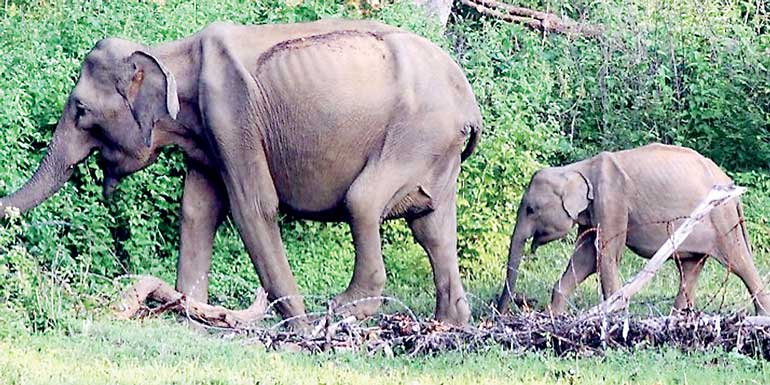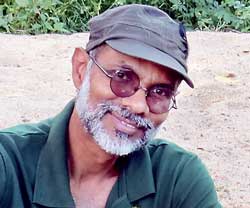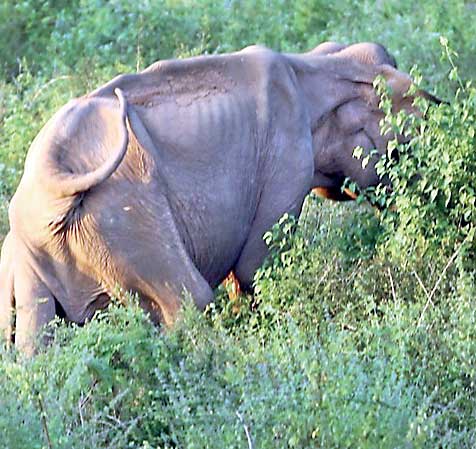Sunday Feb 22, 2026
Sunday Feb 22, 2026
Wednesday, 14 October 2015 00:00 - - {{hitsCtrl.values.hits}}

The idea in creating protected areas is that animals will find refuge there and lead a sheltered life, free from detrimental impacts caused by humans. 
A large segment of the protected area network of the Department of Wildlife Conservation was set up specifically for the conservation of elephants. Elephants in our parks do not have to contend with the myriad abominations heaped upon them by us, in the name of safeguarding our crops and dwellings. Therefore we would expect them to do much better than those outside.
However, all is not well with the elephants in our protected areas, many of them are starving to death. What is causing this paradox and what can we do to put it right?
The speech will be delivered on 22October at 6p.m. at the Met Department Auditorium, BauddhalokaMawatha, Colombo 7.
Dr.PrithuvirajFernando qualified as a m edical doctor but decided to pursue a career in conservation biology. Subsequently he obtained a PhD from the University of Oregon USA on the ‘Genetics Ecology and Conservation of the Asian Elephant’.
edical doctor but decided to pursue a career in conservation biology. Subsequently he obtained a PhD from the University of Oregon USA on the ‘Genetics Ecology and Conservation of the Asian Elephant’.
He pioneered genetic analysis of Asian elephants and radio tracking elephants in Sri Lanka. He joined Columbia University New York in 1999 and conducted research on Asian elephants and Javan rhinos. He has conducted fieldwork in Sri Lanka,Indonesia,Laos, Cambodia, Borneo and Bangladesh.
Returning to Sri Lanka in 2004 he together with a number of eminent scientists set up the Centre for Conservation and Research (CCR), of which he currently serves as the Chairman. CCR conducts research for mitigating the human-elephant conflict and conserving elephants.
Dr. Fernando is also a Research Associate of the Smithsonian Institution USA and has received the Whitley Award for Nature Conservation and Presidential Awards for Scientific excellence.